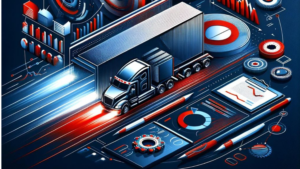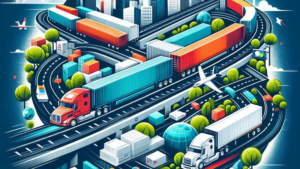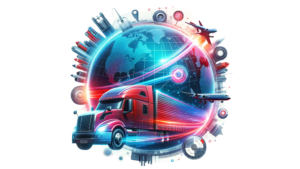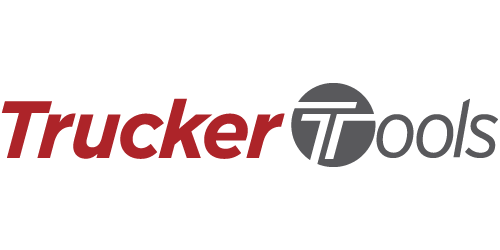What is logistics? In this article, we’ll discuss the following:
- What is it?
- What is the difference between logistics and supply chain management?
- Types
- Why it matters for businesses.
- Shipping with semi-trucks.
- Complexities.
- Finding a company.
- Shipping solutions.
Let’s dive in!
Across the United States, semi trucks accounted for 71% of all intrastate shipments. From getting gasoline to your local gas stations, to getting that present over to your cousin in time for a birthday, millions of products are moved every year.
But what does that look like exactly? With so many products moving around, it’s a complex system in order to ensure everything is moved on time and correctly.
Today we’re going to talk about that, and explain what is logistics and the crucial role it plays in transportation. Let’s take a look!
What is Logistics
Unless you’ve been living under a rock, you’ve probably heard the word “logistics” before. But what is it, really?
Simply put, logistics is the process of planning, implementing, and controlling the efficient, effective flow of goods and services from the point of origin to the point of consumption. In other words, it’s all about making sure that your products get where they need to go, and on time.
The Difference Between Logistics & Supply Chain Management
While logistics and supply chain management are often used interchangeably, they are two different things. Logistics refers to the actual transportation and movement of goods, while supply chain management encompasses the larger process that includes everything from sourcing raw materials to delivering the final product to the customer.
Types
There are five main types of logistics: procurement, production, sales, recovery, and recycling.
Procurement logistics involves the process of acquiring goods and services from suppliers. This includes everything from identifying potential vendors to negotiating contracts to managing supplier relationships.
Production logistics focuses on ensuring that materials and products flow smoothly through the production process. This includes tasks like planning production schedules, coordinating inventory levels, and supervising assembly line operations.
Sales logistics deals with getting products from the manufacturing facility to the customer, whether that means shipping them directly to retailers or distributing them to wholesalers first.
Recovery logistics is all about ensuring that damaged or defective products are repaired or returned promptly. Now that we’ve answered the question “what is logistics?”, let’s take a closer look at why it’s so important for businesses today.
Why It Matters for Businesses Today
There are several reasons why logistics are important for businesses today. First and foremost, efficient logistics help businesses save money. By streamlining their inbound and outbound operations, businesses can cut down on transportation costs, warehousing expenses, and other overhead costs associated with product movement.
Given that supply chains have become longer and more complex in recent years, this can result in significant savings for businesses of all sizes.
In addition to saving money, efficient logistics also help businesses save time, an increasingly precious commodity in today’s fast-paced world. When you outsource your logistics to a third-party provider, you free up your staff to focus on other core aspects of your business (like developing new products or providing better customer service).
This can lead to increased efficiency and productivity across your entire organization.
Shipping With Semi-Trucks
When most people think of logistics, they picture trucks and trains moving goods from one place to another. And while that’s certainly a key part of the logistics equation, it’s just one piece of the puzzle.
For products to be shipped from one place to another, there needs to be a transportation network in place that can move them quickly and efficiently. That network is made up of roads, highways, bridges, and railroads, all of which need to be maintained and operated in a way that minimizes delays and disruptions.
The trucking industry is a key part of this transportation network. In fact, according to the American Trucking Association, trucks carry more than 11.84 billion tons of cargo in the United States.
That’s why it’s so important for businesses to partner with a reliable trucking company that can meet their shipping needs. When you work with a trucking company, you can rest assured that your products will be delivered on time and under budget.
It’s not just about having a reliable trucking company though… it’s even more important to have a reputable logistics company too.
The Complexities of Shipping
The industry is a complex and ever-changing landscape. To stay ahead of the curve, businesses need to partner with a shipping solutions company that can provide them with the latest technology and services.
Logistics managing three main complex areas for trucking companies and their semi loads:
- Material Sourcing
- Transportation
- Order fulfillment
All of these come with difficulties and can cause serious issues for a company if not managed correctly.
Finding a Company
One of the most important things to look for in a shipping partner is their ability to provide real-time tracking information. This allows a company to track its products from the moment they leave the manufacturing facility until they arrive at their final destination.
In addition to real-time tracking, a logistics company should offer other value-added services like order fulfillment and warehousing. These services can take a lot of the complexity out of shipping logistics, allowing a company to focus on more important things (like growing their business).
When it comes to shipping, there’s a lot to consider. But with the right shipping logistics company, products will arrive on time and under budget.
Shipping Solutions
Shipping solutions? Put simply, it’s management over moving things from point A to point b. However, it’s much more complex than that and is required for trucking companies to operate correctly and efficiently.
As you can see, there are many good reasons to incorporate efficient logistics into running business operations. If you’re not already doing so, now is the time to start taking advantage of all that logistics has to offer!
Here at Kirsch Transportation Services, we offer top-of-the-line shipping solutions and services. We’re trusted by Fortune 500 companies, woman-owned, and family-operated. Give us a call today to discuss your needs!
Featured Image Credit: Hannes Egler













